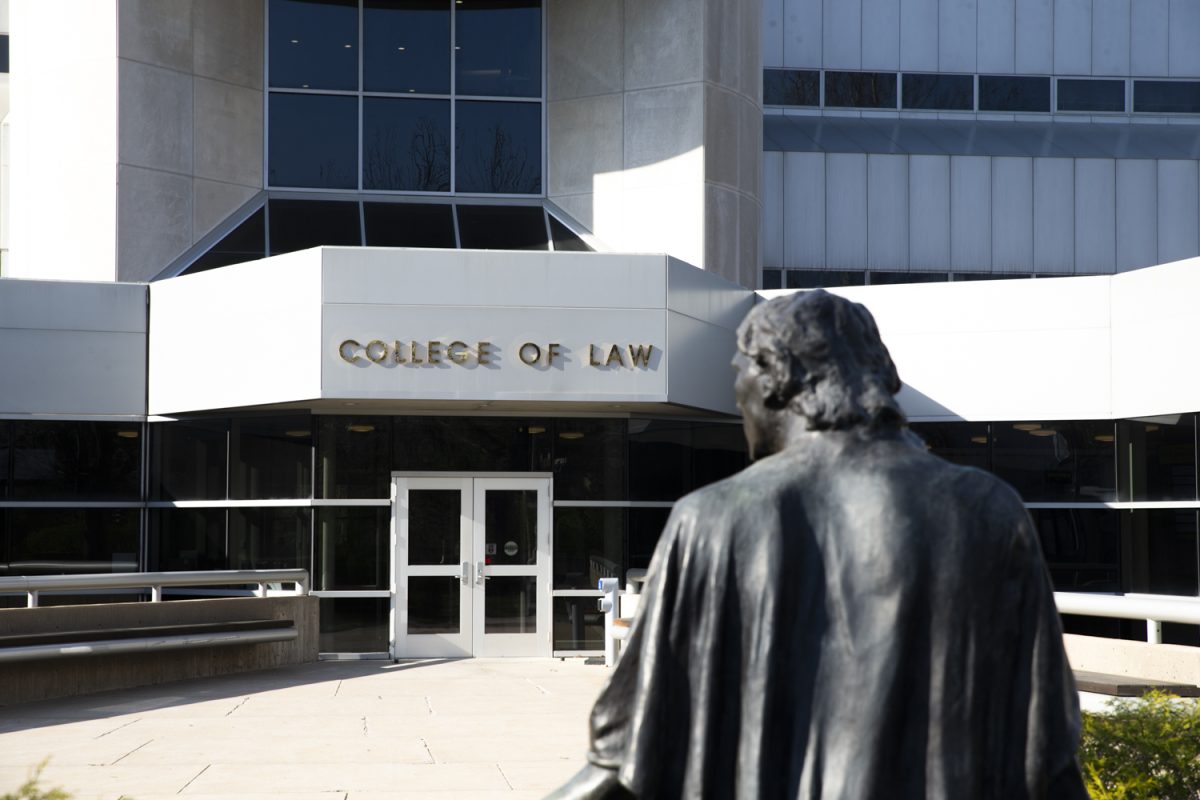The University of Iowa Graduate College has shifted its focus as calls for financial efficiency to flourish.
Thirty-three Ph.D. programs — nearly half of 67 offered at the UI — were deemed ineligible to apply for recruitment scholarships for the 2014-15 school year. Officials say the programs were not successful enough in retaining students or having students complete their degrees on time.
Recruitment scholarships provide funding to students who are entering Ph.D. programs in an attempt to make the university a more attractive option for applicants.
“We want to make sure we’re supporting the students who have the most likely chances of successful outcomes,” said Daniel Berkowitz, an associate dean of the Graduate College. “ ‘Success’ has been a big word in the Graduate College, this year in particular.”
Graduate College Dean John Keller said officials want to redirect funds into programs with higher completion rates along with summer and dissertation-year fellowships, which would boost students who are almost done.
“We’ve also started to learn if we can provide funds for students to complete, there’s a much higher chance of success than there is supporting students who have potential on the way in,” Berkowitz said.
Berkowitz and Keller declined to provide names of specific departments affected, but a department official confirmed the UI’s anthropology Ph.D. program is one that became ineligible.
“I understand the university is under great fiscal pressures these days, and they’re trying to find ways to make them more efficient,” said James Enloe, the head of the Anthropology Department.
“Unfortunately, different disciplines have different ways of doing things.”
Enloe said the anthropology program’s completion time is increased by students’ need to travel abroad, learn foreign languages, and apply for external funding, which is less reliable than for other programs.
He expressed distaste at what he described as the college’s “one-size-fits-all” approach.
“It’s unfortunate they don’t allow more diversity and latitude,” Enloe said.
He said incoming doctoral students will have to rely on funding from teaching assistantships instead. It will be more difficult for them to focus on research, he said, and potentially raise time spent in school, which he believes is “counterproductive” to the college’s goals.
Ben Gillig, the president of the Executive Council of Graduate and Professional Students, said graduate departments had numerous concerns.
Department members took issue with data concerning programs that were later merged together. Their concern was that data from previously separate programs were used to measure the newly merged ones.
He also said statistically stronger programs lost eligibility if they were under weaker departments, but there are talks in the Graduate College to provide exceptions.
“I do think it was a little more disruptive than the Graduate College originally intended,” he said.
Gillig believes the officials are “trying to do the right thing,” but he is skeptical the decisions will provide educational benefits. He described them as “just a first step.”
“You’re not really providing any pathway to success,” he said. “You’re simply punishing in hopes that it will incentivize behavior modification. I think that’s sort a tenuous assumption that merely by punishing you can make people do things in a better way.”






